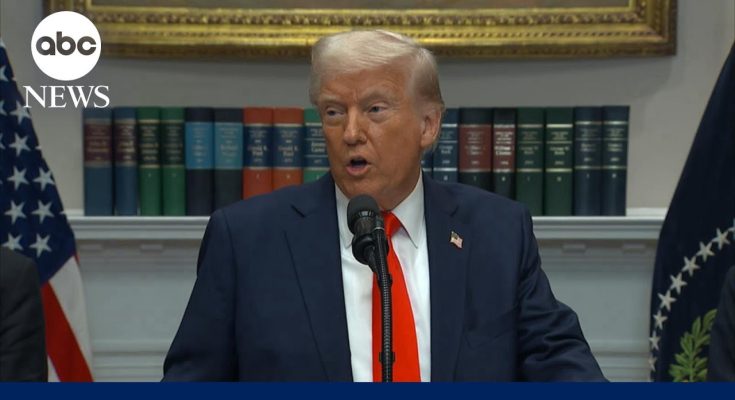Trump Orders Pause of Military Aid for Ukraine: A Shift in U.S. Foreign Policy
In a move that has sent ripples through the political and diplomatic landscape, former U.S. President Donald Trump has ordered a halt in military aid to Ukraine. The decision comes amid escalating tensions surrounding the ongoing conflict between Ukraine and Russia, which has now entered its second year. Trump’s pause on military assistance has sparked widespread debate and raised questions about the future direction of U.S. foreign policy under his leadership, should he make a successful bid for the presidency again in 2024.
During his tenure as president, Trump maintained an often controversial stance on foreign policy, particularly concerning military support to foreign nations. While his administration did provide Ukraine with defensive aid, including anti-tank missiles and other military equipment, Trump was frequently vocal about his belief that European nations, especially NATO members, should bear more responsibility for Ukraine’s defense. This new decision to pause aid, however, marks a significant shift, signaling a possible return to the “America First” policy that Trump championed during his presidency.
The Decision and Its Implications
Trump’s order to pause military aid comes at a time when Ukraine is engaged in a high-stakes struggle against Russian military forces that have made significant territorial gains in the Donbas region and other parts of eastern Ukraine. Since Russia’s invasion in February 2022, the U.S. has been one of the largest supporters of Ukraine, sending billions in both military and humanitarian assistance. This support has included advanced weaponry, intelligence sharing, and economic sanctions aimed at crippling Russia’s war effort.
The Trump administration’s suspension of aid may lead to a substantial change in the dynamics of the conflict. Experts suggest that without U.S. military aid, Ukraine could face severe challenges in continuing its fight against Russia, potentially leading to a shift in the balance of power in the region. While Trump’s spokespersons have argued that the move is intended to ensure that military aid is used more effectively and that NATO allies are doing their part, critics warn that it could embolden Russia and weaken Ukraine’s position.
Domestic and International Reactions
Domestically, Trump’s decision has polarized political opinions. Republican hardliners have praised the former president’s focus on securing U.S. interests and reducing foreign entanglements. They argue that the United States should not be spending billions of dollars to support a conflict that does not directly affect American security. On the other hand, many Democrats, as well as some moderate Republicans, have condemned the move, citing concerns over the humanitarian crisis in Ukraine and the potential for Russia to expand its territorial control if U.S. support dwindles.
Internationally, Ukraine’s leaders have expressed disappointment, urging the U.S. to reconsider the pause and continue its support. Ukrainian President Volodymyr Zelensky has repeatedly stressed the importance of international military aid in pushing back Russian forces and securing Ukraine’s sovereignty. With many European allies already providing significant support, Ukraine has been relying heavily on U.S. aid to maintain its resistance.
A Question of Strategy
Trump’s decision raises broader questions about his approach to foreign policy. His “America First” mantra has always been focused on prioritizing U.S. interests, but the pause in aid to Ukraine suggests a more isolationist stance that some see as inconsistent with the broader strategic interests of the U.S. in Europe. Critics argue that abandoning Ukraine at this critical juncture would undermine American leadership and embolden adversaries like Russia and China.
As the situation in Ukraine remains volatile, the pause in military aid underscores the evolving nature of U.S. foreign policy and the complexities surrounding international conflicts. With Trump hinting at another presidential run in 2024, this move is likely to be a significant point of discussion in the lead-up to the election, as voters weigh the implications of his foreign policy decisions for global security and America’s role in the world.
